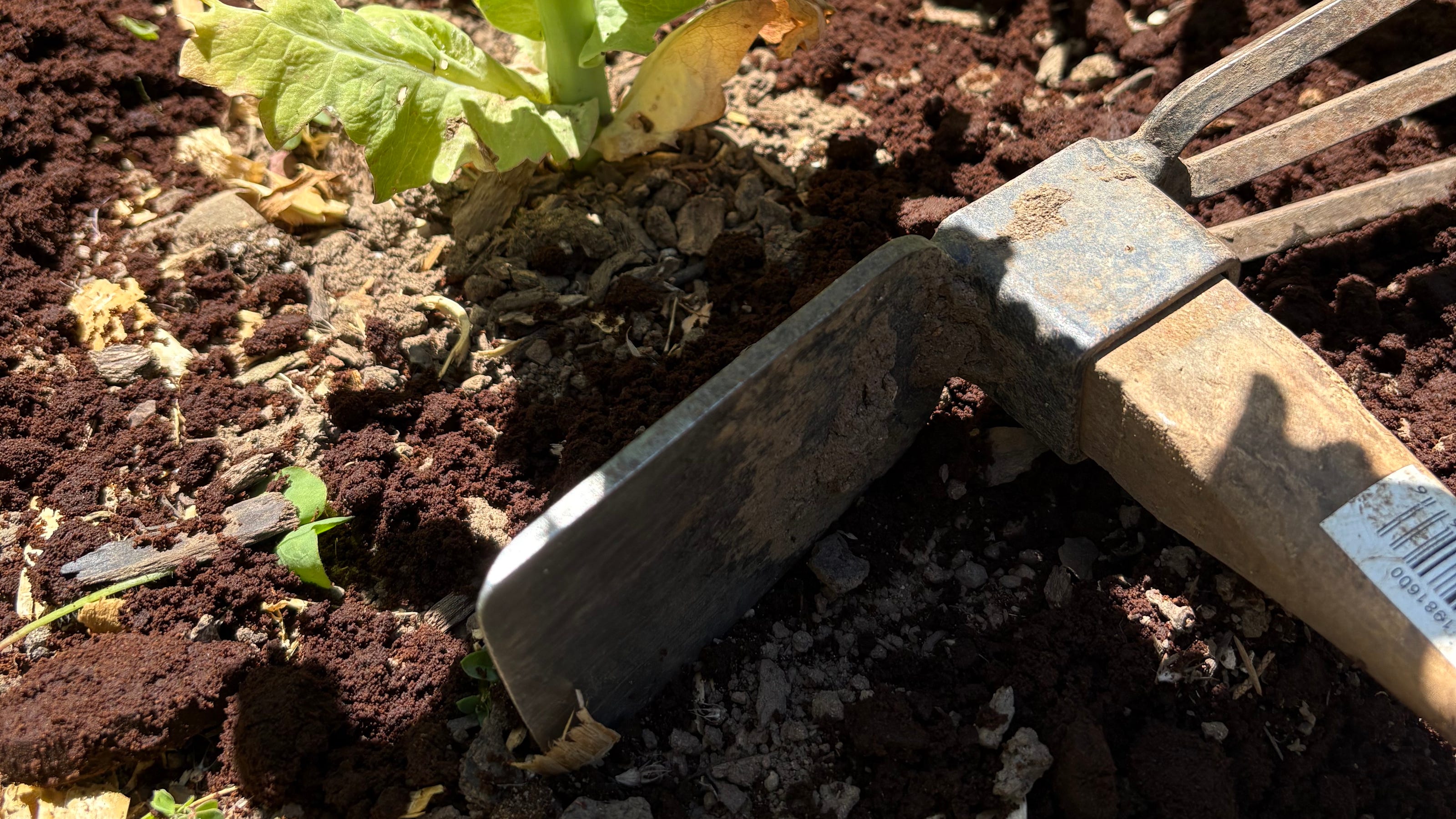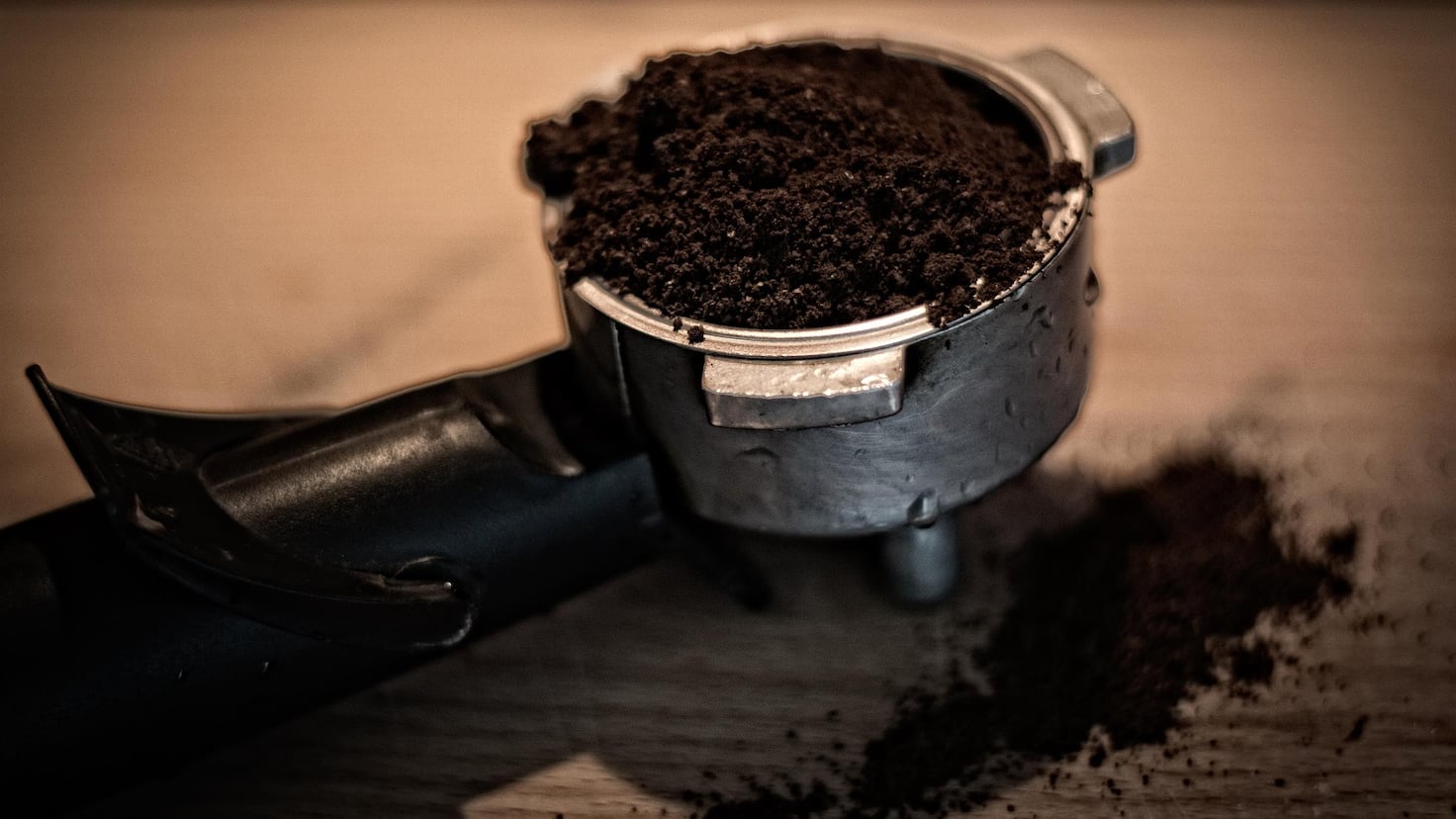Using Coffee Grounds To Improve Your Plants: A Guide

Welcome to your ultimate source for breaking news, trending updates, and in-depth stories from around the world. Whether it's politics, technology, entertainment, sports, or lifestyle, we bring you real-time updates that keep you informed and ahead of the curve.
Our team works tirelessly to ensure you never miss a moment. From the latest developments in global events to the most talked-about topics on social media, our news platform is designed to deliver accurate and timely information, all in one place.
Stay in the know and join thousands of readers who trust us for reliable, up-to-date content. Explore our expertly curated articles and dive deeper into the stories that matter to you. Visit Best Website now and be part of the conversation. Don't miss out on the headlines that shape our world!
Table of Contents
Using Coffee Grounds to Improve Your Plants: A Guide to Better Blooms and Bountiful Harvests
Are you a coffee lover with a green thumb? Then you're in luck! Instead of tossing those spent coffee grounds, you can repurpose them as a surprisingly effective soil amendment for your plants. Coffee grounds offer a wealth of benefits, enriching your garden and potentially boosting your plant growth. This guide will explore how to use coffee grounds to improve your plants, covering everything from application techniques to potential drawbacks.
The Perks of Using Coffee Grounds in Your Garden
Coffee grounds are more than just waste; they're a treasure trove of nutrients for your plants. Their benefits stem from their composition:
-
Nitrogen Boost: Coffee grounds are a moderate source of nitrogen, a crucial nutrient for lush foliage and vibrant blooms. Nitrogen promotes healthy leaf growth and contributes to overall plant vigor. This makes them particularly beneficial for nitrogen-loving plants like leafy greens and roses.
-
Improved Soil Structure: Spent coffee grounds improve soil structure by increasing aeration and drainage. Their organic matter helps retain moisture, preventing both waterlogging and dryness. This is especially helpful for clay soils, which often compact and become poorly drained.
-
pH Balancing Act: Coffee grounds are slightly acidic (pH around 6.5), making them ideal for acid-loving plants like blueberries, azaleas, rhododendrons, and camellias. However, be mindful of the overall pH of your soil – too much can lead to imbalances.
-
Pest Deterrent: Some gardeners report that coffee grounds can deter certain pests, such as slugs and snails. The grounds' texture and scent might make the soil less appealing to these unwelcome visitors. However, this isn't a guaranteed method of pest control.
How to Use Coffee Grounds Effectively:
-
Composting is Key: Ideally, coffee grounds should be composted before direct application. This allows them to break down further, releasing nutrients more readily and reducing the risk of fungal growth. Mix them with other organic materials like yard waste and fruit scraps for optimal composting. (replace with a relevant link).
-
Direct Application (with caution): You can add fresh coffee grounds directly to your garden, but do so sparingly, especially for plants sensitive to acidity. Mix them into the top layer of soil, avoiding direct contact with plant stems.
-
Mulching Marvel: Coffee grounds make an excellent mulch, helping to retain moisture, suppress weeds, and regulate soil temperature. Apply a thin layer around your plants, avoiding excessive accumulation.
-
Worm Farm Friend: If you have a worm composting bin (vermicomposting), coffee grounds are a welcome addition. Worms love them!
Potential Drawbacks and Considerations:
-
Acidity: While beneficial for acid-loving plants, excessive coffee grounds can lower the soil pH too much, potentially harming plants that prefer neutral or alkaline conditions. Monitor your soil pH regularly.
-
Nitrogen Imbalance: Overuse can lead to an excess of nitrogen, which can harm your plants. Start with small amounts and observe your plants' reaction.
-
Fungal Growth: Fresh coffee grounds can attract fungus if not composted properly. Always ensure good aeration and avoid piling them too densely.
Conclusion:
Using coffee grounds in your garden is a simple, sustainable way to enrich your soil and promote healthier plant growth. By following these guidelines and carefully monitoring your plants, you can reap the benefits of this readily available resource. Remember to start slowly, observe your plants' response, and adjust your application accordingly. Happy gardening!
Keywords: coffee grounds, gardening, soil amendment, organic gardening, compost, nitrogen, plant growth, soil improvement, acid-loving plants, mulch, sustainable gardening, pest control, pH balance.

Thank you for visiting our website, your trusted source for the latest updates and in-depth coverage on Using Coffee Grounds To Improve Your Plants: A Guide. We're committed to keeping you informed with timely and accurate information to meet your curiosity and needs.
If you have any questions, suggestions, or feedback, we'd love to hear from you. Your insights are valuable to us and help us improve to serve you better. Feel free to reach out through our contact page.
Don't forget to bookmark our website and check back regularly for the latest headlines and trending topics. See you next time, and thank you for being part of our growing community!
Featured Posts
-
 Ukraines Political Landscape Shaken Investigating The Death Of Andriy Portnov
May 27, 2025
Ukraines Political Landscape Shaken Investigating The Death Of Andriy Portnov
May 27, 2025 -
 Technology Vs Touch Harvard Commencement Address Focuses On Human Interaction
May 27, 2025
Technology Vs Touch Harvard Commencement Address Focuses On Human Interaction
May 27, 2025 -
 Coffee Grounds On Lawn A Natural Fertilizer And Soil Enhancer
May 27, 2025
Coffee Grounds On Lawn A Natural Fertilizer And Soil Enhancer
May 27, 2025 -
 Airport Romance Jo Jo Siwa And Chris Hughes Spark Dating Speculation
May 27, 2025
Airport Romance Jo Jo Siwa And Chris Hughes Spark Dating Speculation
May 27, 2025 -
 Labours Nationalisation Policy South Western Railway Case Study
May 27, 2025
Labours Nationalisation Policy South Western Railway Case Study
May 27, 2025
Latest Posts
-
 French Media Censorship Macrons Marital Ad Disappears
May 30, 2025
French Media Censorship Macrons Marital Ad Disappears
May 30, 2025 -
 Musician Rick Derringer Dead At 77 His Collaborations And Impact
May 30, 2025
Musician Rick Derringer Dead At 77 His Collaborations And Impact
May 30, 2025 -
 High Profile Jailbreaks Fuel Renewed Debate On Us Prison Security
May 30, 2025
High Profile Jailbreaks Fuel Renewed Debate On Us Prison Security
May 30, 2025 -
 Tesco Shoppers Mock Self Checkout Surveillance
May 30, 2025
Tesco Shoppers Mock Self Checkout Surveillance
May 30, 2025 -
 In Memoriam George Strait Remembers His Hero Victim Of North Texas House Fire
May 30, 2025
In Memoriam George Strait Remembers His Hero Victim Of North Texas House Fire
May 30, 2025
